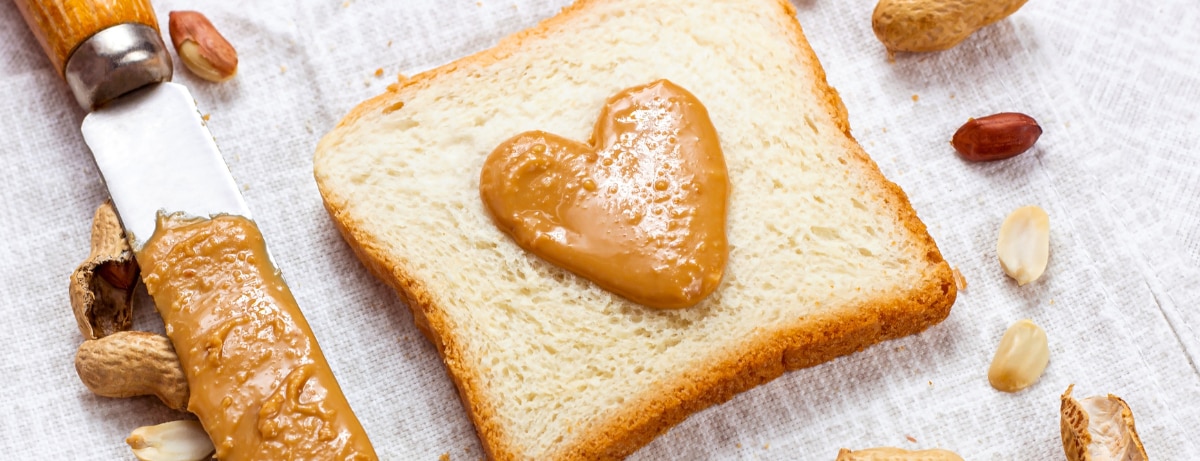15% off £25 or 20% off £35
Code:BASKET
Is cholesterol bad? Causes of high cholesterol

Cholesterol often gets a bad rap, but is it actually the villain it’s made out to be? And what causes high cholesterol anyway? We answer your burning questions
Summary
1Is cholesterol bad for you?
Your body needs cholesterol for vital functions, but too much ‘bad’ cholesterol (LDL) can raise your risk of heart disease and stroke…
2Causes of high cholesterol
High cholesterol isn’t down to one thing. Many factors including diet, weight, smoking, inactivity, age, family history and even some health…
3How can you lower cholesterol?
Most of us could make a few small changes to our routines that could improve our cholesterol levels, such as getting more active, stopping smoking…
Cholesterol is a type of fat that’s used for lots of different processes in the body.1 While your body does need cholesterol, high levels can lead to narrowing of arteries (atherosclerosis), increasing the risk of heart disease and strokes.1
Eating a high-fat diet, being overweight and even your genes can lead to to high cholesterol levels, but there are things you can do to manage and reduce your cholesterol levels.1,2
Is cholesterol bad for you?
Although high cholesterol levels can be harmful, increasing the risk of cardiovascular diseases like heart attacks and strokes, your body still needs some cholesterol to be able to function normally.1
Cholesterol is important for:1
- making and supporting the membranes of your cells
- creating vitamin D
- producing sex hormones like oestrogen and testosterone
- helping to make bile salts, which are used in digestion to absorb vitamins K, A, E and D
Some of the cholesterol your body needs comes from the foods you eat, but your cells can also produce cholesterol which mainly occurs in your liver.1
Because cholesterol is fatty, your body uses special proteins called lipoproteins to transport it through the bloodstream. The two main types of lipoproteins are known as low-density lipoproteins (LDL) and high-density lipoproteins (HDL).1
You may have heard of HDLs and LDLs when people talk about ‘good’ and ‘bad’ cholesterol.
Good cholesterol vs. bad cholesterol
High levels of certain types of cholesterol can be bad for your health.3 Cholesterol transported by HDLs is often referred to as ‘good’ cholesterol, while LDL cholesterol is known as ‘bad’ cholesterol.3 But why is this the case?
HDLs are anti-inflammatory.3 They help mop up excess cholesterol from cells and transport it to the liver, where it’s removed from the body.3 This process can help lower total cholesterol levels and reduce the risk of heart disease.3
LDLs, on the other hand, are linked to inflammation and increase the risk of atherosclerosis (narrowing of the arteries), which can reduce blood flow, leading to heart attacks and strokes.3
Simply put, high levels of HDL cholesterol are generally a good thing – although not excessively high, as this may increase the risk of heart problems. Too much LDL cholesterol, on the flip side, can lead to health issues.3,4
But, what causes high cholesterol in the first place?
Causes of high cholesterol
From diet to genes, all sorts of things can impact your cholesterol levels.
Some people think that eating too much cholesterol-rich food directly causes high blood cholesterol levels. However, it’s still unclear how much the cholesterol in the foods you eat raises LDL ‘bad’ cholesterol levels.1
What you eat still has an impact on your cholesterol levels though, as consuming too many saturated or trans fats can increase your blood cholesterol.1
Drinking alcohol and smoking are both linked to increased cholesterol levels.1,2
So, it’s best to stick to the NHS guideline of no more than 14 units of alcohol a week.5 Curious about tracking your alcohol intake? Check out our guide to alcohol and learn how to calculate units.
Smoking or vaping has also been shown to lower HDL ‘good’ cholesterol, contributing to atherosclerosis – sounds like a good reason to quit.6
Being overweight and not exercising regularly can both increase cholesterol levels.1,7
Research suggests that being overweight is linked to lower levels of HDL cholesterol, while aerobic exercise – activities that get your heart pumping – is associated with higher HDL cholesterol.7
Men aged 20–39 years tend to have higher cholesterol levels than women, but as women go through menopause, their total cholesterol and LDL levels often go up.8 Cholesterol typically increases in both men and women with age, as the body becomes less efficient at removing LDL cholesterol.8
Total cholesterol and the balance between HDL and LDL cholesterol can also vary across ethnic groups. Some data suggests that white people are more likely than other groups to have high cholesterol levels. People from Asian backgrounds often have higher LDL levels, while those from African or Afro-Caribbean backgrounds typically have higher HDL levels than other groups.8 It’s worth noting that most of this data is from the USA rather than the UK so may not fully reflect the UK population.
Certain health conditions can be related to raised cholesterol levels, including:8
- chronic kidney disease
- diabetes
- HIV/AIDS
- hypothyroidism
- lupus erythematosus
- overweight and obesity
- polycystic ovary syndrome (PCOS)
- sleep apnea
This may be because of risk factors for the disease or because of the medication used to treat it.8
Certain changes in your genes, known as ‘mutations’, make it harder for your body to break down cholesterol, and these are often passed on from parent to child.8 If your family members have high cholesterol, you may be at an increased risk too.
Is there a way to tell if you have high cholesterol?
In a recent NHS Health Survey for England, researchers found that the proportion of adults with high cholesterol was 53%, as well as being more common in women than men.9

But, although it’s common, finding out you have high cholesterol often comes as a surprise.
There aren’t any physical high cholesterol symptoms or obvious warning signs that your LDL levels are creeping up too high.10,11 The only way to find out if you have healthy cholesterol levels is by getting a cholesterol test at your doctor’s office (a simple blood test) or using a cholesterol test kit.11
What do cholesterol readings mean?
| Type of cholesterol | Normal cholesterol levels (mmol/L) |
|---|---|
| Total cholesterol. The combined amount of ‘good’ and ‘bad’ cholesterol in your blood. | 5 or lower |
| HDL. The amount of ‘good’ cholesterol in your blood. | 1 or higher in men or 1.2 or higher in women |
| Non-HDL. A measure of ‘bad’ cholesterol in your blood. | 4 or lower |
Note: This is general NHS guidance on cholesterol readings.11
How can you lower cholesterol?
Most of us could make a few small changes to our routines that could improve our cholesterol levels, such as getting more active, stopping smoking, eating less saturated fat and reducing how much alcohol we drink.1,6,7 Some people may also benefit from taking medication – especially those with a family history of high cholesterol.1
For more information on how to lower your cholesterol, check out our in-depth cholesterol guide.
The final say
High cholesterol can be caused by some things that are within our control (like diet, exercise, alcohol and smoking) and factors beyond our control (like genes and age).1,7,8
You may not notice any symptoms of high cholesterol, so it’s important to talk to your doctor if you think your cholesterol may be raised. They’ll be able to advise you on lifestyle changes, the potential role of cholesterol supplements and whether you might need medication.
In the meantime, take a look at good and bad fats to discover tips on which fats can raise cholesterol and how to choose healthier options.
Disclaimer - This article provides informational advice and is not a substitute for medical care. Curated by experts for accuracy, we take great care to ensure the information is up-to-date and relevant. However, you should always consult your GP or healthcare professional before using supplements or alternative products, particularly if you have medical conditions or are under supervision.
1. Huff T, et al. Physiology, cholesterol. Treasure Island (FL): StatPearls Publishing; 2023. Available from: https://www.ncbi.nlm.nih.gov/sites/books/NBK470561/
Febriani D, Febriani B. The effect of lifestyle on hypercholesterolemia. Open Public Health J. 2018;11(1):526–32. https://openpublichealthjournal.com/VOLUME/11/PAGE/526/ABSTRACT/
Elshourbagy NA, et al. Cholesterol: The good, the bad, and the ugly – Therapeutic targets for the treatment of dyslipidemia. Med Princ Pract. 2014;23(2):99–111. https://doi.org/10.1159/000356856
Yuan S et al. Associations of HDL-C/LDL-C with myocardial infarction, all-cause mortality, haemorrhagic stroke and ischaemic stroke: a longitudinal study based on 384 093 participants from the UK Biobank. Stroke and Vascular Neurology. 2022;8(2) svn. https://doi.org/10.1136/svn-2022-001668
NHS. Alcohol [Internet]. www.nhsborders.scot.nhs.uk. Available from: https://www.nhsborders.scot.nhs.uk/small-changes-big-difference/small-changes-you-can-make/alcohol/
Hu H, Nakagawa T, Honda T, Yamamoto S, Miyamoto T, Okazaki H, et al. Heated tobacco products and circulating high-density lipoprotein cholesterol concentrations. Scientific Reports. 2022;12(1). https://doi.org/10.1038/s41598-022-22337-3
Nassef Y, et al. Association between aerobic exercise and high-density lipoprotein cholesterol levels across various ranges of body mass index and waist-hip ratio and the modulating role of the hepatic lipase rs1800588 variant. Genes. 2019;10(6):440. https://doi.org/10.3390/genes10060440
National Heart, Lung, and Blood Institute. Blood cholesterol - Causes and risk factors [Internet]. [cited 2024 Dec 19]. Available from: https://www.nhlbi.nih.gov/health/blood-cholesterol/causes
NHS Digital. Health Survey for England, 2022 Part 2 [Internet]. England: NHS Digital; 24 September 2024 [cited 2025 Sep 5]. Available from: https://digital.nhs.uk/data-and-information/publications/statistical/health-survey-for-england/2022-part-2
UKHSA. High cholesterol: Beating the build-up during Cholesterol Month - UK Health Security Agency [Internet]. [cited 2024 Dec 18]. Available from: https://ukhsa.blog.gov.uk/2015/10/12/high-cholesterol-beating-the-build-up-during-cholesterol-month/
NHS. Cholesterol levels - High cholesterol [Internet]. [cited 2024 Dec 18]. Available from: https://www.nhs.uk/conditions/high-cholesterol/cholesterol-levels/














